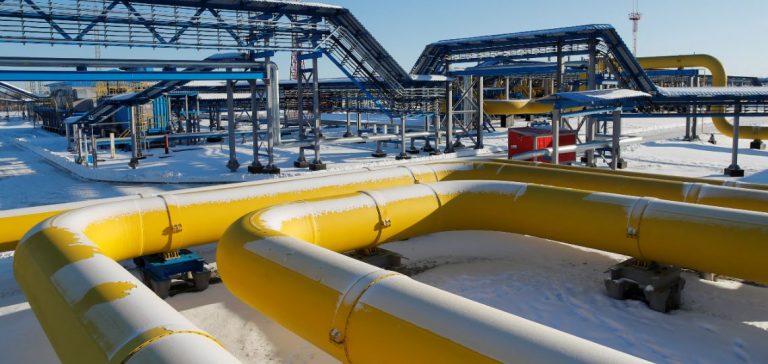Russian gas deliveries via Ukraine reached 1.26 billion cubic meters in September, marking a slight increase of 0.5% compared to the previous year. However, this volume represents only 39% of the contracted transit, according to data published on October 9 by the Ukrainian Gas Production Group Association (AGPU).
Since the beginning of 2024, transit flows totaled 11.6 billion cubic meters, recording a 7% year-on-year increase. Despite this rise, volumes remain significantly below the contractual levels established in the transit agreement signed in December 2019 between Russia and Ukraine, which is set to expire at the end of 2024.
Impact on the European Gas Market
The reduction in transit volumes has significant repercussions on the European gas market. Gas prices for January and February 2025 delivery on the Title Transfer Facility (TTF) have reached record levels, becoming the highest of all future delivery periods planned until 2030. Platts, a subsidiary of S&P Global Commodity Insights, assessed the January 2025 TTF contract at €39.78/MWh and the February 2025 contract at €39.92/MWh, up from a day-ahead assessment of €38.05/MWh.
Consequences of the Agreement Expiration
The transit agreement, which stipulates “ship-or-pay” conditions obligating Gazprom to pay for transit whether it uses it or not, is set to expire at the end of the year. Naftogaz, the Ukrainian state-owned company, reported on September 26 that it earned a total of 20.409 billion hryvnias ($496 million) from the transit of Russian gas in the first half of 2024. However, the cost of organizing the transit amounts to 19.192 billion hryvnias ($377 million), meaning that three-quarters of the revenue from Gazprom is used to maintain the transit service.
Perspectives and International Debates
Ukrainian Prime Minister Denys Shmyhal reaffirmed on October 7 that Ukraine would not extend the transit agreement with Moscow. This statement came after Shmyhal met with his Slovak counterpart Robert Fico, who has been advocating for the continued transit of Russian gas via Ukraine after the current agreement expires. Slovakia, along with Austria, remains heavily dependent on Russian gas imports supplied via Ukraine, complicating negotiations and future prospects for transit.
Gas Sales on the Ukrainian Exchange
Additionally, AGPU reported that 379 million cubic meters of gas were sold in September on the Ukrainian Energy Exchange, with a weighted average price of 14,452 hryvnias per 1,000 cubic meters ($350 per 1,000 cubic meters). Naftogaz was the most active participant during the month, purchasing 313 million cubic meters of gas, or 83% of the total transactions. Since April 2023, private producers and traders have begun selling gas on the Ukrainian Energy Exchange in response to a decline in consumption and purchases by the industrial sector in the country.
Historical Transit Flows
Russian gas transit via Ukraine peaked at 117 billion cubic meters in 2008 but fell to just 14.65 billion cubic meters last year. This drastic decrease reflects geopolitical tensions and changes in trade agreements between the two countries.
The gas pipeline network is managed by GTSOU, the Ukrainian network operator, while Naftogaz signed the transit agreement with Gazprom in 2019, defining the conditions and transit volumes for the 2020-2024 period. The continuation of these flows will largely depend on negotiations between Kiev and Moscow, as well as the energy needs of countries dependent on Ukrainian transit.






















